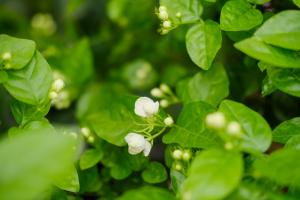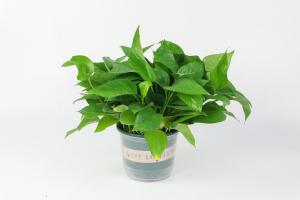Why Are My Tomatoes Not Ripening on the Plant
Tomatoes are one of the most popular vegetables grown in home gardens because of their versatility in the kitchen and the satisfaction of growing them yourself. However, the disappointment of finding unripe tomatoes on the vine after weeks of waiting can be frustrating. Here are some reasons why your tomatoes might not be ripening on the plant.
Lack of Sunlight
Tomatoes require a lot of sunlight to ripen, at least six hours of direct sunlight each day, but they can benefit from more. If your plants are not getting enough sunlight, they may produce fruit that is slow to ripen or may not ripen at all. Make sure your tomato plants are planted in an area that gets plenty of sunlight, and avoid planting them near trees or other tall plants that could block the sun.
Cool Temperatures
Tomatoes thrive in warm weather, with temperatures between 70-75°F being ideal for proper fruit ripening. Cooler temperatures may cause the fruit to ripen at a slower pace or not at all. If your region experiences cool temperatures, be patient as your tomatoes may take longer to ripen. However, if the temperatures are consistently too low, you may need to consider moving your plants to a warmer location, like a greenhouse or indoor grow room.
Overwatering
Overwatering is a common mistake that can hinder the ripening process of your tomato plants. Too much water limits the amount of oxygen that reaches the roots, which can interfere with nutrient absorption, and slow down fruit production. Be sure to water your tomato plants during dry spells, but only give them enough water to keep the soil moist, not soaked.
Lack of Nutrients
Tomatoes require a lot of nutrients to grow and ripen properly. Too little or too much of certain nutrients can cause unripened, malformed or slow-growing fruit. Make sure you are providing your tomato plants with the recommended amount of nitrogen, phosphorus, and potassium, which are involved in flower and fruit production. Too much nitrogen can lead to excessive vegetative growth and inhibit fruit ripening, while too little phosphorus can hinder fruit development, and too little potassium can cause fruit to ripen unevenly. Consult with a local nursery or university extension office for proper fertilization techniques and recommendations specific to your region.
Disease or Insects
Diseases and insect infestations can also affect the ripening process of your tomatoes. Bacterial and fungal diseases, such as blossom end rot, can cause unripened fruit or fruit that turns black before it has a chance to mature. Pests like aphids, whiteflies, and spider mites can suck the life out of your tomato plant, affecting the yield and ripening process. Be sure to keep an eye out for any signs of disease or insect infestation and treat them promptly to ensure the best fruit quality.
Conclusion
In conclusion, tomato plants require specific conditions to ripen effectively, including proper sunlight, warmth, watering, and nutrition. Diseases and pests should also be prevented or treated. By addressing these issues, you can increase your chances of having ripe and healthy tomatoes for your table.

 how many times do yo...
how many times do yo... how many planted tre...
how many planted tre... how many pine trees ...
how many pine trees ... how many pecan trees...
how many pecan trees... how many plants comp...
how many plants comp... how many plants can ...
how many plants can ... how many plants and ...
how many plants and ... how many pepper plan...
how many pepper plan...































